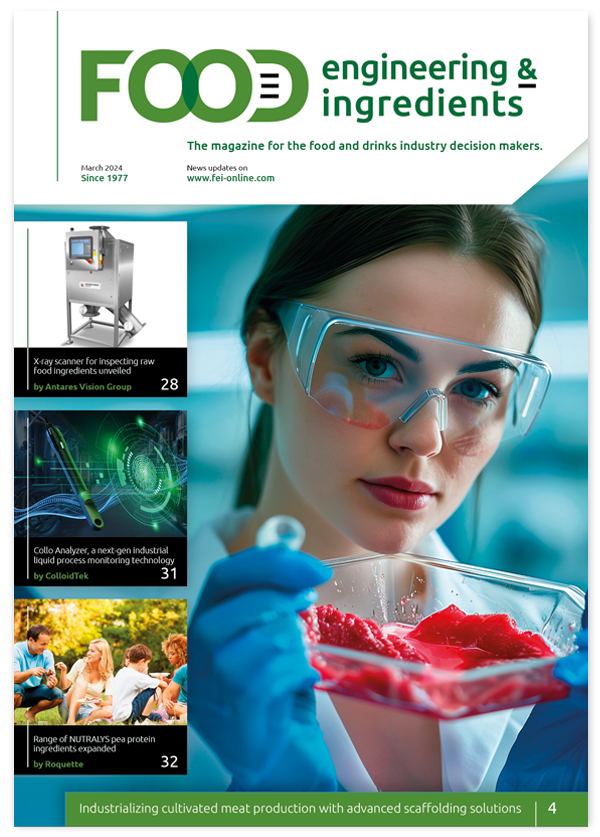Economically motivated adulteration of “natural” berberine & the need for carbon-14 analysis
The surge in natural berberine supplements has led to increased adulteration with synthetic alternatives. Haley Gershon, Marketing Manager, Beta Analytic; Samarth Vikram Singh, CEO, Gramen Botanicals, and; Lokesh Patil, Lead Scientist, Gramen Botanicals, explore the growing market for natural berberine, the challenges of product authenticity, and how carbon-14 testing can verify genuine plant-sourced berberine from synthetic versions.
Over the last decade, there has been a significant increase in consumer interest in natural health products, driven by a heightened awareness about the benefits of plant-based supplements as well as side effects of many conventional medicines. However, the market for natural plant extracts, such as medicinal herbs, essential oils, and dietary supplements, is often plagued by adulteration with synthetic substances, often petrochemical derivatives. Among these plant-based supplements, berberine has garnered substantial attention.

Dry berberis
Berberine is a naturally occurring alkaloid found in several plants, including Berberis species, goldenseal, and Oregon grape. Known for its range of health benefits not limited to antimicrobial, anti-inflammatory, and anti-diabetic effects, berberine is widely used in traditional medicine and is now a popular ingredient in dietary supplements and herbal remedies. However, with the increasing demand for berberine, concerns about the authenticity and purity of products marketed as containing “natural berberine” have also grown.
Market overview: Natural berberine
The global market for natural berberine is experiencing substantial growth, driven by increasing consumer awareness of its broad spectrum of health benefits and a strong preference for natural and plant-based supplements. Valued at approximately US$1.5 billion in 2023, the market is expected to continue expanding at a steady pace. Derived from several medicinal plants, berberine (an ancient remedy) has found a modern audience, particularly as a dietary supplement, amid a rising trend towards natural health products over synthetic pharmaceuticals.
The demand for natural berberine is primarily fueled by the growing prevalence of lifestyle-related diseases, such as Type 2 diabetes, obesity, and cardiovascular disorders, which are major health concerns worldwide. According to the World Health Organization (WHO), the prevalence of diabetes has been steadily increasing, creating a substantial market for effective management solutions. Berberine’s potential in regulating glucose metabolism and improving insulin sensitivity makes it a popular choice among consumers seeking natural alternatives to conventional diabetes medications, thus driving its demand in the nutraceuticals sector.
Regionally, the market for natural berberine is most robust in North America and Europe, where there is high consumer awareness about natural health supplements and a preference for products perceived as safer and more sustainable. These regions are characterized by strong distribution networks, including health food stores, pharmacies, and e-commerce platforms. North America, in particular, benefits from a large aging population that is more likely to suffer from chronic health conditions and thus more inclined to seek out supplements like berberine.
In the Asia Pacific region, the natural berberine market is rapidly expanding, driven by both historical usage in traditional medicine systems and growing interest in natural health solutions among a health-conscious middle class. With deep roots in herbal medicine traditions such as Traditional Chinese Medicine (TCM) and Ayurveda that date back centuries, countries like China and India are experiencing a resurgence of interest in natural remedies, further bolstered by economic growth and increasing disposable income. Additionally, these regions serve as major producers of natural berberine, providing a competitive advantage in terms of cost and availability.
The problem: Economically motivated adulteration
Despite the promising outlook, the market for natural berberine faces significant challenges, primarily due to issues related to product authenticity and quality control. The influx of synthetic berberine, often mislabeled as “natural”, threatens to undermine consumer trust and the market’s growth potential.
Ensuring the authenticity of natural berberine is crucial not only for maintaining consumer trust but also for safeguarding public health. Natural berberine extract from plant sources contains a unique composition of bioactive compounds that can contribute individually as well as synergistically, to impart therapeutic effects. In contrast, synthetic berberine or berberine analogs like 3,4-methylenedioxy-phenethylamine, often produced at a lower cost, will lack this unique profile of bioactive compounds. Furthermore, synthetic berberine can also introduce harmful substances in the body due to possible toxic chemical residues left behind from chemical synthesis processes.
Overall, the rise of synthetic alternatives, frequently mislabeled as natural products, has led to increasing cases of adulteration, undermining the efficacy of natural supplements and posing serious health risks to consumers.
The solution: Carbon-14 testing
To address these concerns, there is a pressing need for reliable methods to authenticate the natural source of berberine in commercial products. Carbon-14 analysis is increasingly critical for authenticating natural plant extracts used in the food and nutraceutical industries. This technique distinguishes between plant-derived materials and synthetic analogs, ensuring product authenticity and quality. Synthetic berberine is typically derived from petrochemical sources, which contain no Carbon-14 due to the isotope’s complete decay over millions of years. Therefore, by measuring the Carbon-14 content, it is possible to distinguish between natural and synthetic sources of berberine.
Carbon-14 analysis also plays a vital role in environmental sustainability and compliance. Regulatory bodies and consumers across the world are increasingly demanding transparency about the sourcing and authenticity of natural products. Carbon-14 analysis helps support and reinforce claims of sustainable harvesting practices and prevents the exploitation of endangered plant species by ensuring that extracts are derived from renewable, recent plant sources rather than ancient or non-renewable sources.
Authenticating natural-sourced berberine
Carbon-14 analysis can be applied to products and ingredients in order to verify natural source claims. It is an accurate test method to measure the percentage of natural-sourced (biobased) versus fossil-sourced carbon content. The analysis is based on international standards such as ASTM D6866 and ISO 16620-2 and uses an Accelerator Mass Spectrometer (AMS) instrument to measure samples.
Since carbon-14 content is only present in living or recently expired material and is not found in fossil-derived or petrochemical-derived material, the analysis is able to thus determine how much biobased content comprises various products or ingredients, including berberine.
By analyzing samples of berberine labeled as “naturally sourced”, carbon-14 testing can both identify adulteration and fraudulent claims and authenticate natural-sourced ingredients. Carbon-14 test results indicate the percentage of biobased carbon derived from a material or ingredient, such as berberine. Results can range from 0-100% biobased carbon content, in which 0% biobased indicates that the berberine sample is only derived from petrochemical sources, whereas 100% biobased content means the sample is wholly derived from a naturally sourced, renewable material. A result between 0% and 100% means the berberine sample includes both natural-sourced and petroleum-based materials.
Conclusion
Looking ahead, the market for natural berberine is poised for continued growth, driven by increasing consumer demand for natural health products and ongoing research into its health benefits. Innovation in product formulations and greater transparency regarding sourcing and production practices will likely play critical roles in shaping the market’s future, ensuring that natural berberine remains a trusted and effective option for health-conscious consumers worldwide.
Applying Carbon-14 analysis for berberine authentication provides a robust solution to a growing problem, offering a scientific basis for quality control in the natural products market. This technique ensures that consumers receive genuinely natural berberine, helps maintain the integrity of the industry, and supports informed consumer choices. As the natural products market continues to expand, the role of such authentication methods will become increasingly important, underscoring the need for advancements in technology and regulatory frameworks to protect both consumers and ethical producers from the risks of adulteration.


